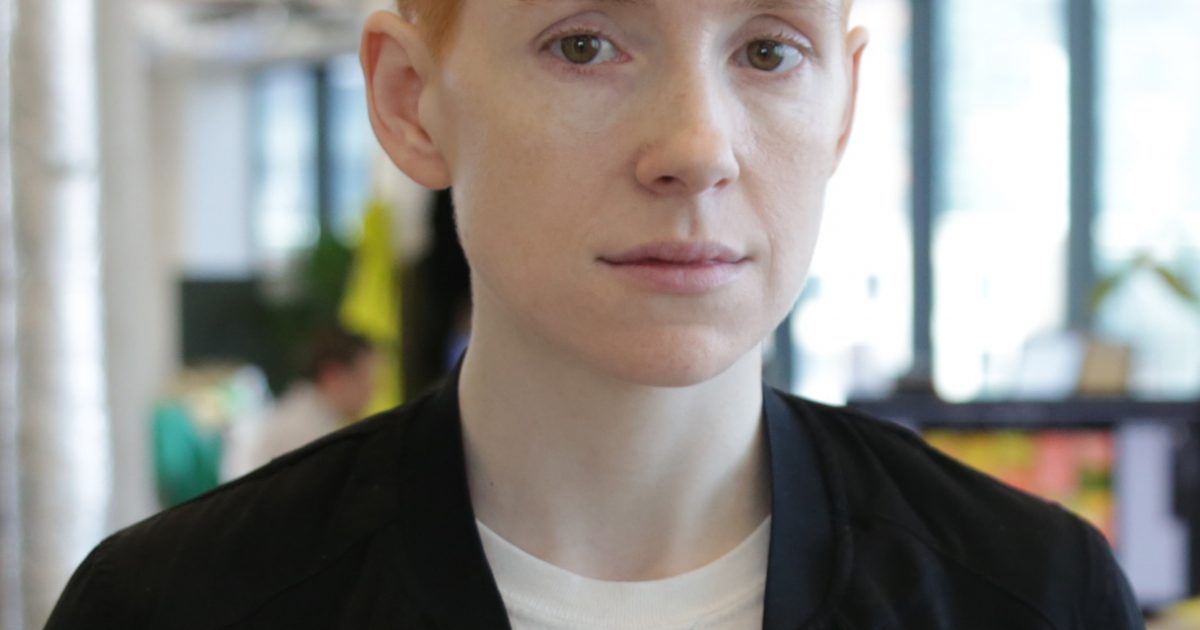
ADC Shortlist 2025
Bereits sechs Wochen vor dem ADC Festival tagten die 405...

Grace Francis [They/Them] ist Chief Experience Officer bei der Agentur Karmarama London und interessiert sich dafür, wie Technologie die Menschheit prägt. Engagiert setzt sich Grace für Empathie und Ethik im Design ein, doziert dazu unter anderem an der University of the Arts London. Auch aus persönlichen Gründen legt er*sie einen weiteren Schwerpunkt auf Intersektionalität. Er*sie gründete elsestudio.org, ein kostenloses Angebot, das Design Thinking nutzt, um Menschen bei ihren großen Entscheidungen im Leben oder in der Arbeit zu unterstützen. Für den ersten Jahrgang der ADC Future Females bot Grace vor einigen Tagen einen exklusiven Workshop an. Uns hat er*sie ein paar Fragen beantwortet, doch die erste vorab....
Was macht eine*n Chief Experience Officer aus? Laut Grace hinterlässt er*sie überall Spuren – „fingerprints“ –, setzt aber unter nichts seine*ihre Unterschrift. Wie sieht es da mit der Anerkennung der eigenen Person und Leistung aus?
How do praise and purpose in a job affect someones well-being?
Praise can feel wonderful and often when we’re not getting enough praise, we turn to things like pay increase as a way to feel appreciated. Praise alone isn’t enough — it can often be used to encourage us to take on more work, like a promotion in title that doesn’t include an increase in salary — we need purpose, a belief in what we’re doing and why we’re doing it to feel fulfilled at work. Having purpose is one of the easiest ways to ask yourself if you’re in a job or a career. If you don’t have purpose it is a job. If you don’t have purpose and praise, it is a bad job.
How can creatives find out what their purpose is?
Determining your own purpose is a lifetime pursuit, and it will likely change throughout your life. Creatives can start by asking themselves two questions — why did I get into this job? Recalling your original hopes and aspirations and if they are still relevant and being met at work now, and then secondly, ask how would I fulfil my creativity if it wasn’t through work? Some of us will already have answers to this, artistic pursuits, entrepreneurial side hustles or even hobbies. These two questions help you look more broadly than a job description about what creativity means to you and how to fulfil your creative purpose.
If you don’t have purpose it is a job. If you don’t have purpose and praise, it is a bad job.
What does becoming unstuck mean to you?
Becoming unstuck can be as simple as looking at the problem and asking a different question. I think we often find our thoughts get stuck in loops, the same concerns, predicted outcomes, fears. By asking from a different point of view, you can start to get unstuck and find new ways to think about the same problem. One great way to do this is to ask someone you know and trust to sit down and talk about it with you. Find someone slightly removed from your life, so there’s a little perspective and see how their questions set you on a different path of thinking.
When was the first time you became unstuck and how did it affect you?
When I realized I wasn’t my job title. I was looking to see how to contribute to a project based on what my job description said I should be doing, not what I actually was able to contribute. When I realized this, I stopped waiting for permission and jumped in. I never looked back. It’s a trope, but remember, Einstein’s job was a patent clerk. You’re more than your job. Bring that thinking, those skills, those dreams into your 9-5. People might find it hard at first, but that’s because you’re doing something brave and bold.
Neben Grace haben viele weitere beeindruckende und inspirierende Speaker*innen Keynotes für die ADC Future Females gehalten und persönliche Erfahrungen wie Learnings mit ihnen geteilt. Drei der Keynotes könnt ihr euch auf unserem ADC YouTube Channel anschauen.
Alle Infos zum Female Leadership Programm hier.

Bereits sechs Wochen vor dem ADC Festival tagten die 405...

Der ADC Creative Club ist in vollem Gange! Seit gestern,...

Getreu dem Motto Leave Egos behind, Change the World with...